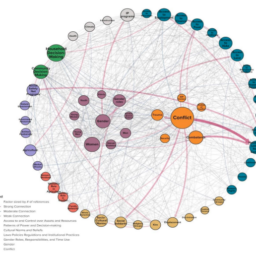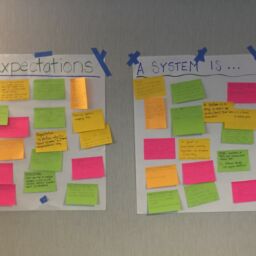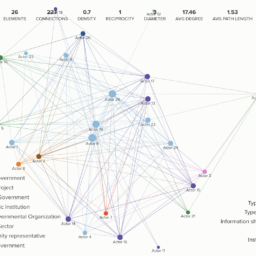By: Diana Harper
Why are people part of learning networks? What attracts them to join in the first place, and what sustains their participation over time? And how can network facilitators create the conditions so that learning networks thrive? Recently, we sought to better understand these questions in Ethiopia as part of the USAID Sustainable WASH Systems Learning Partnership.

In Ethiopia, LINC is supporting activities to strengthen learning networks for sanitation in two small towns. Across the last two years, our partner Tetra Tech has fostered the development of local Learning Alliances. These multi-stakeholder groups work together to create conditions for sustainable improvements in sanitation services using an action research agenda. (Learn more about how Learning Alliances support sustainable systems change from our partner IRC WASH.)
For the long-term sustainability of a network, it is critical to understand how members value the network—what they hope to gain, and what they want to contribute. In these two small towns, we conducted a small and informal survey among Learning Alliance members to understand their past, current, and future expectations of the network.
Our analysis showed that members were initially drawn to the network for the purpose of building their capacity, particularly in technical areas related to sanitation service delivery and maintenance. However, they were gaining additional and unexpected value from participating in the network. Specifically, they reported gaining additional opportunities for collaboration among stakeholders, as well as a change in perspective that encouraged them to take a systems perspective on sanitation issues.
We compared the results of this exploration to findings from a recent network analysis that LINC conducted among the same groups. Based on these activities and feedback from facilitators in the field, we developed a set of activities to bolster the network’s value proposition as well as address potential threats to sustainability. As a result, the SWS team in Ethiopia is launching new activities to strengthen communication among Learning Alliance members, as well as conduct outreach to relevant stakeholders who are outside of the network.
This experience shows how the integration of a systems perspective and analytic tools can increase the effectiveness and sustainability of an intervention. As these local networks further develop and move toward the end of the project, we look forward to learning and sharing more.
Download the case study here.



